Moscow Grand Prix Round 1.1: The Poles have a great day!
The Grand Prix series 2019 which will determine two spots in the Candidates 2020, has revamped its format. Instead of the round robin or swiss format which it followed in the last few years, we are witnessing a World Cup like knock out event. As there are world class players taking part, this knock-out event is going to attract a lot of eyeballs. The first leg of the Grand Prix began in Moscow on 17th of May. Out of the 8 games that were played, three were decisive. Both the Polish players won their games with Duda getting the better of So, and Wojtaszek beating Mamedyarov. The other decisive game was Nepomniachtchi scoring a win against Aronian. So, Shakh and Lev had their task cut out on day two to win at all costs in order to avoid being knocked out.
The race for the 2020 World Chess Championship officially started on Friday in the Central House of Chess Players in Moscow as 16 of the world’s best players clashed in the opening round of the FIDE Grand Prix Series organized by World Chess. Three of the eight games ended decisively, putting three players (Wesley So of the United States, Levon Aronian of Armenia and Shakhriyar Mamedyarov of Azerbaijan) on the verge of elimination under the new knockout format being used for this year’s series.
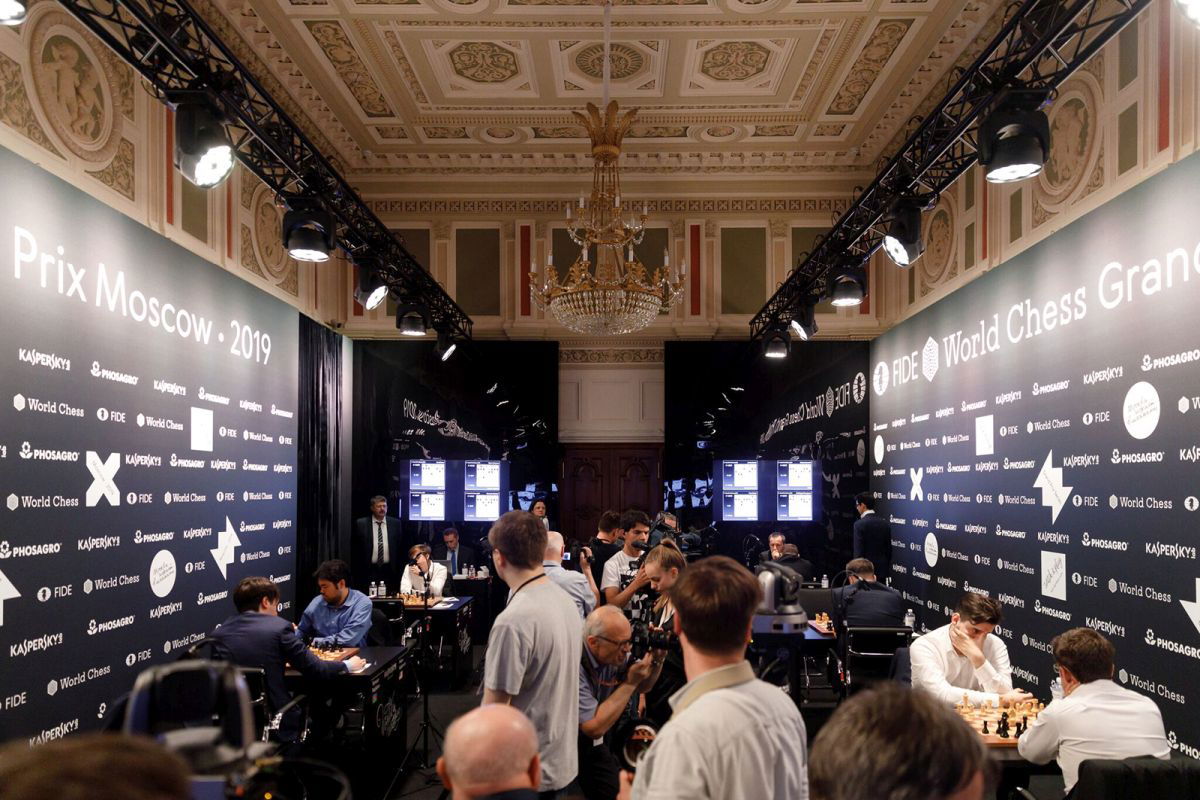
The FIDE Grand Prix is four tournaments. In addition to Moscow, the sites include Jurmala (a suburb of Riga), Latvia; Hamburg, Germany; and Tel Aviv, Israel. The prize fund is 130,000 euros for each tournament with an additional 280,000 euros allocated among the top 10 finishers in the series, for a total of 800,000 euros. More importantly, the top two finishers will qualify for next year’s Candidates tournament to select a challenger for the World Championship match to be held in November 2020.
There are 21 players in the Grand Prix, with each playing three of the four tournaments. (One additional player will be nominated by the Israeli Chess Federation to participate in the last tournament, but will not play in the rest of the series and therefore cannot qualify for the Candidates.) The top player in the Grand Prix, based on the current world rankings, is Anish Giri of the Netherlands, who is No. 4. Daniil Dubov of Russia, the reigning World Rapid Champion, is the lowest ranked player at No. 48.
The Grand Prix series has been around for more than a decade and has used two formats in the past: a round-robin, in which each player in the tournament played every other once, and a Swiss system in which players were paired based on their standings in each tournament. This year’s format is radically different: It is a knockout tournament of mini-matches. Each player faces another one in two classic, or slow games over two days, going to a series of faster tie-breaker games on a third day if the match is tied. The format mirrors the one used in the biennial World Cup. The hope is that it will stimulate more exciting games and discourage draws.

The initial results on Friday did not live up to those hopes as the higher stakes in each game – a loss is potentially fatal to any player’s chances – led to short draws. Short draws are permitted, unlike in many high-level tournaments, which usually adopt a rule that requires that games go past at least 30 moves. Several players mentioned that difference in post-game interviews and how strange it felt to have that option.
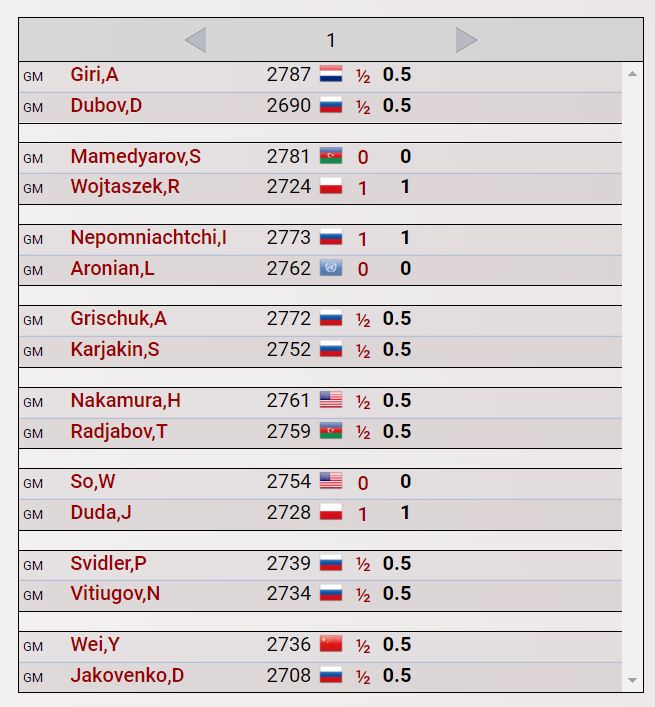
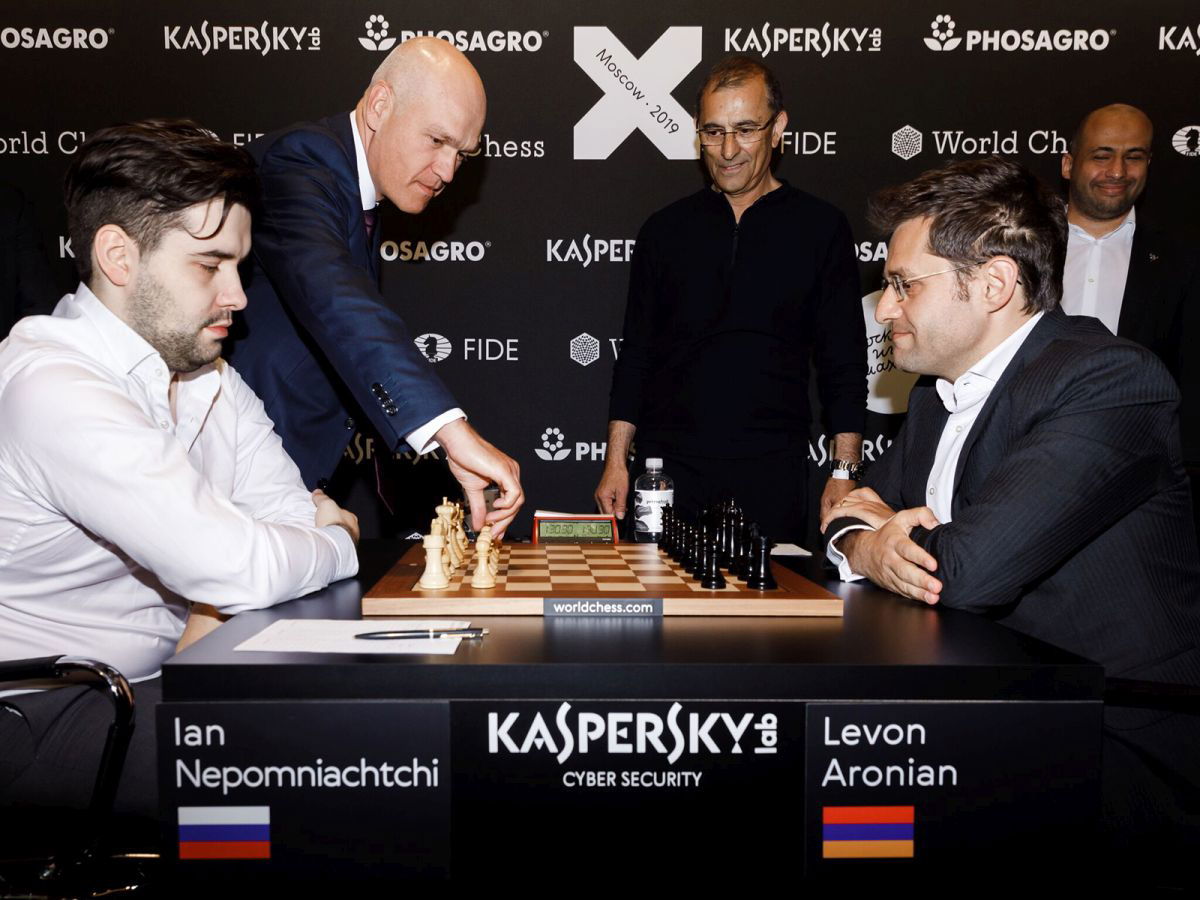
The first game to finish was between Teimour Radjabov of Azerbaijan and Hikaru Nakamura of the United States, who agreed to a truce in under an hour and after only 12 moves. Afterward, in a nod to the tensions and high stakes, Nakamura predicted that there would be many draws in the tournament. His prediction seemed like it might come true as draws soon followed between Sergey Karjakin and Alexander Grischuk, both of Russia, and Nikita Vitiugov and Peter Svidler, who are also Russian.
In an interview, Svidler mentioned another dynamic about the tournament and the format: Some of the matches were between long-time friends and/or colleagues, making protracted fights somewhat less likely. For example, Vitiugov has long assisted Svidler in his preparations for World Championship caliber tournaments, so facing him was difficult. “I hate it,” Svidler said.
Wei Yi of China and Dmitry Jakovenko of Russia played a hard-fought draw, trading most of their major pieces by Move 23. Wei, who at 19 is the youngest player in the field, got into a bit of time pressure, which has become a defining characteristic of his career. In the interview afterward, he said that he was a bit surprised by Jakovenko’s 4 … d4, which left White a little cramped in the center.
Wei Yi vs Jakovenko, Round 1
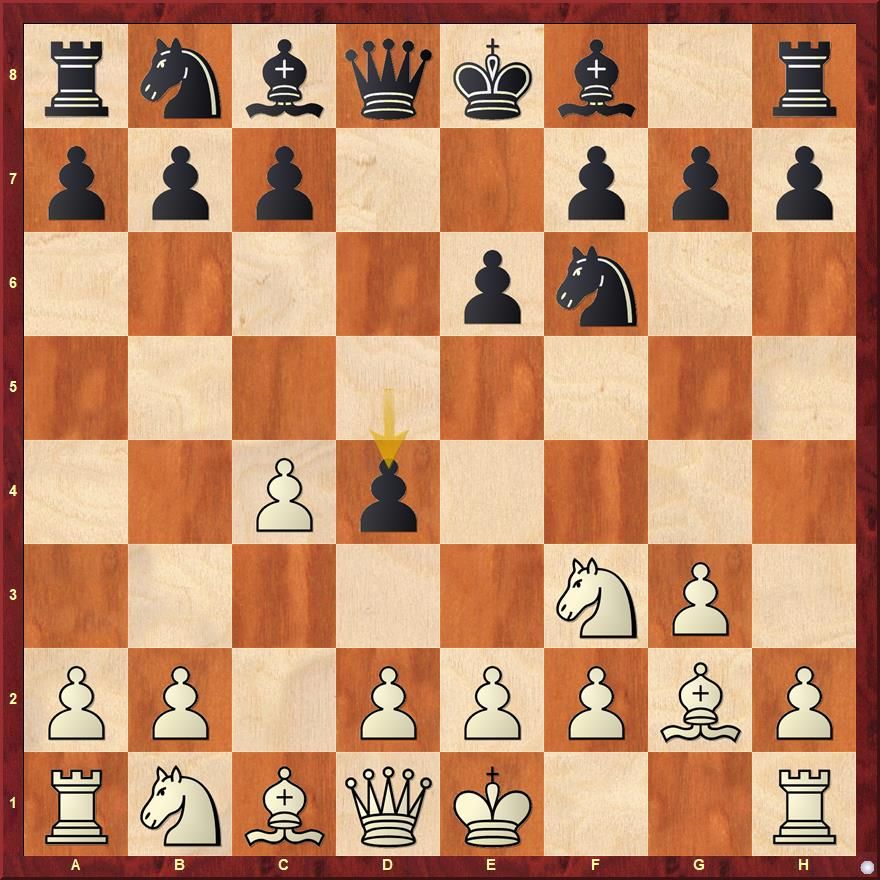
Giri, though he had White, had to fight uphill against Dubov, who surprised him in the opening with a pawn sacrifice that not only seized the initiative but left Giri’s king dangerously stranded in the center. It was an exciting, messy game and Giri was in deep trouble as he consumed a lot of his allotted time and Dubov began to pry open the center. But Dubov missed the best continuations and allowed Giri to generate enough counterplay to lead to a dynamically balanced position. The players agreed to a draw after 36 moves.
Giri vs Dubov, Round 1
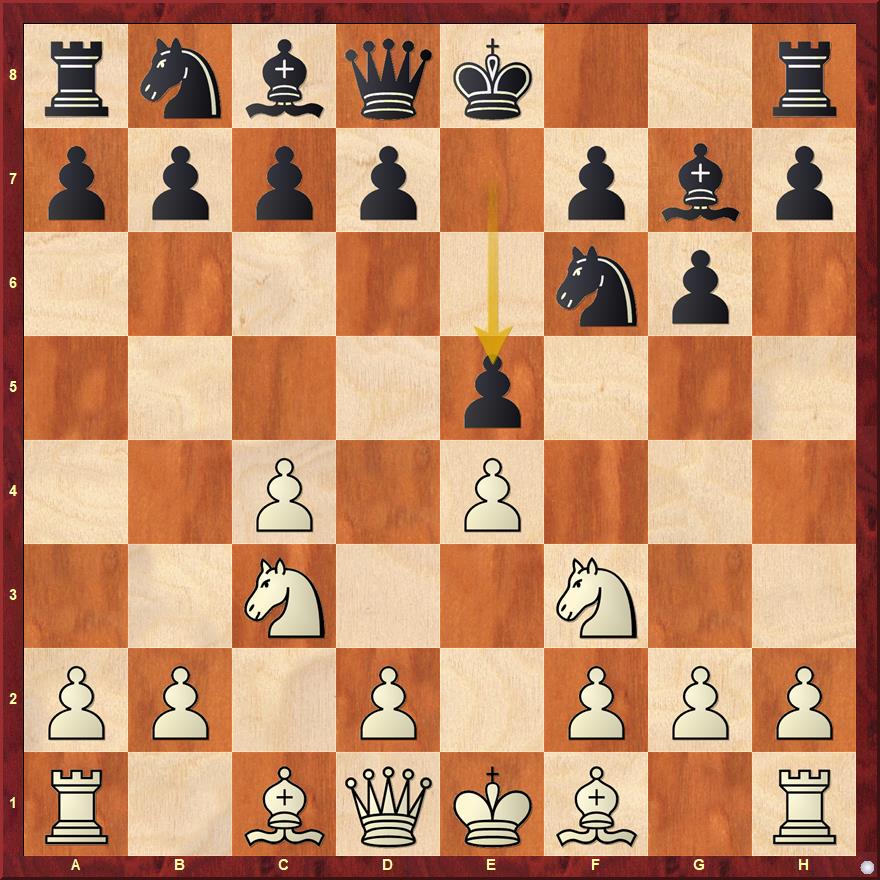
The first decisive result was between Jan-Krzysztof Duda of Poland and So. The opening was a Giuoco Piano, which is Italian for quiet game. The game was proceeding down a well-known path when So blundered with 10… Kh8.
Duda vs So
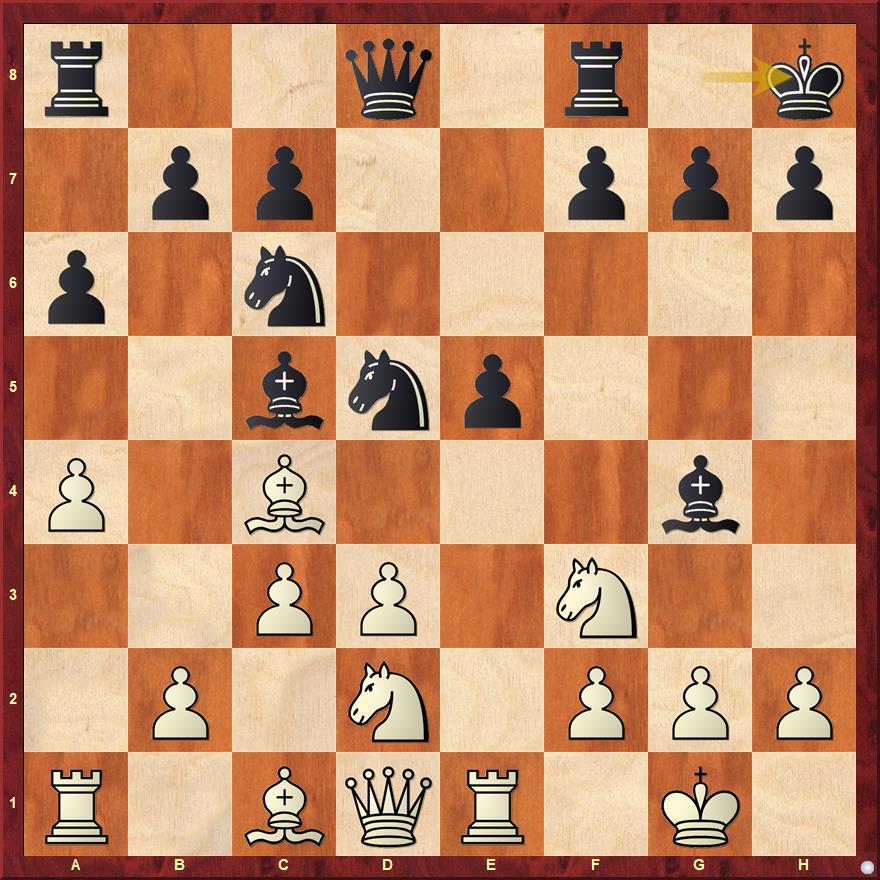
h3 followed by Ne4-g3 allowed Duda to create a difficult choice for So: Trade his light-squared bishop or give up a pawn. So chose to give up a pawn, but he did not really have enough compensation for it. So’s position quickly deteriorated and he resigned after only 25 moves. Duda mentioned afterward that he has been lucky against So before as So had blundered against him in a couple of other games as well.
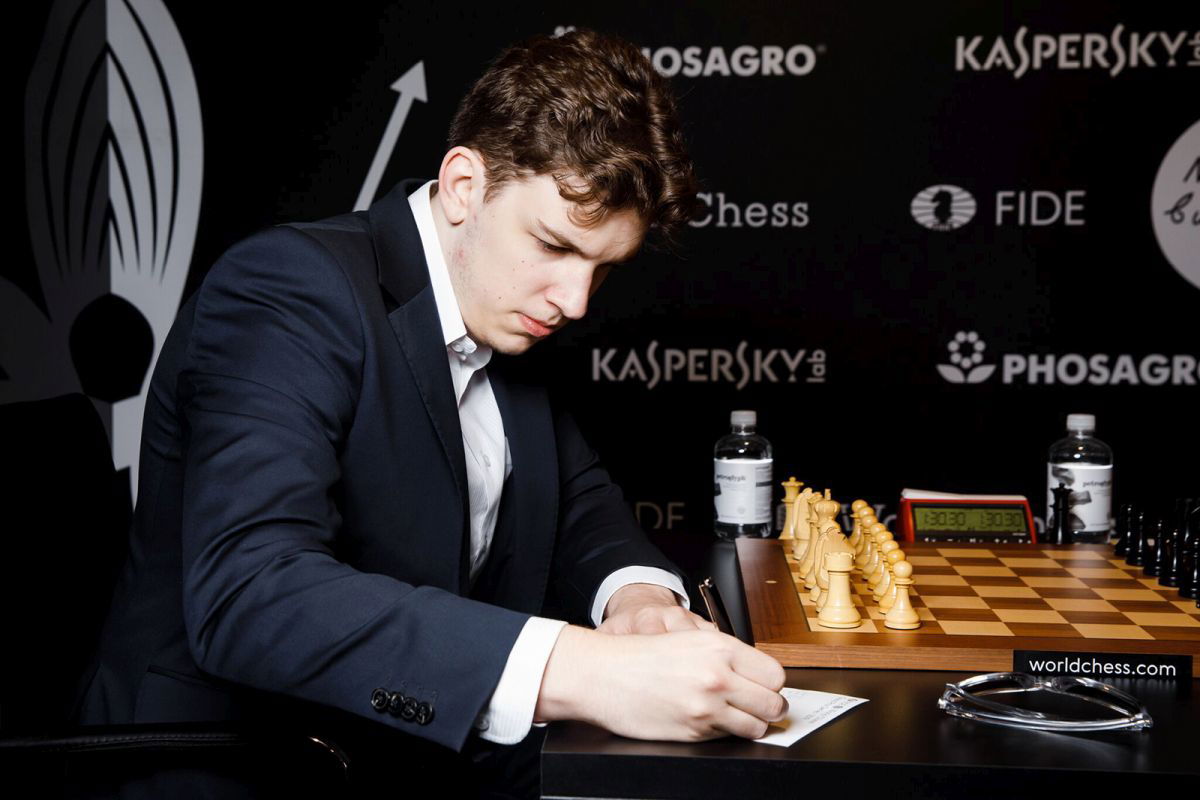
The two longest games of the day were between Ian Nepomniachtchi of Russia vs. Aronian and Radoslaw Wojtaszek of Poland vs. Mamedyarov. Nepomniachtchi, who had White, surprised Aronian with a rare sideline in the Ruy Lopez. Aronian seemed in real trouble, but he kept finding resources and fighting back, though he eventually lost a pawn as the game headed into an endgame. Aronian sacrificed a piece to eliminate Nepomniachtchi’s queenside pawns. The game see-sawed back and forth, with both players making errors until Nepomniachtchi gave up his knight to exchange all of Aronians pawns. Aronian still had chances to draw, but he had to play perfectly. Instead, he blundered, allowing Nepomniachtchi to force a trade of queens that led to an easily winning endgame. Aronian promptly resigned.
The other game was a heart-breaking loss for Mamedyarov. Wojtaszek, who had White, and is known for his preparation, played quickly in the opening, gaining a slight edge. Mamedyarov found some nice practical moves and, in a very complicated position, managed to turn the tide, ending up with two pieces for a rook and pawn. Though far from being an easy win, Mamedyarov seemed to be firmly in control. But Wojtaszek played stubborn defense and on Moves 55 and 56, Mamedyarov blundered horribly, walking his king into a mating net. The only way to avoid an immediate loss was to give up a knight, leaving him with an insurmountable material deficit. He resigned only 10 moves later.
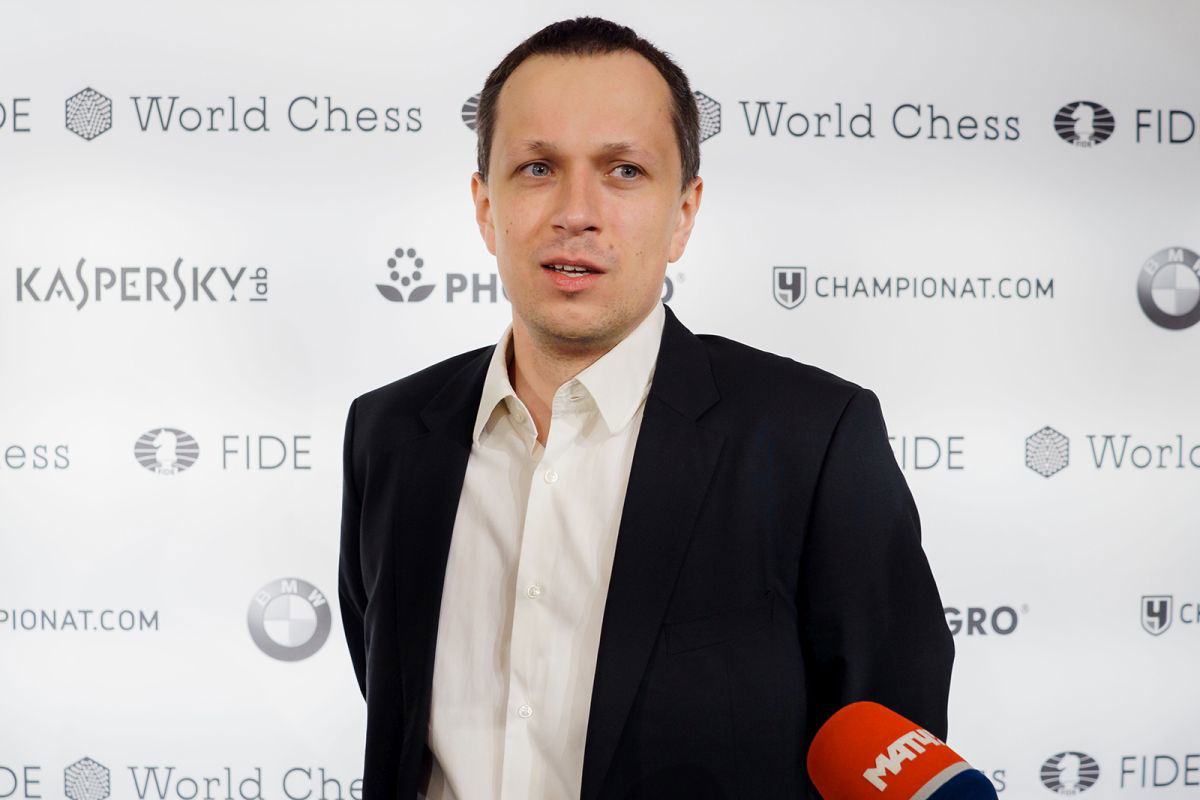
Game 2 of the first round is Saturday at 3 PM local time, 5.30 p.m. IST. With So, Aronian and Mamedyarov facing elimination, they will have to pull out all the stops to survive. That should lead to several exciting games.
Live games begin at 5.30 p.m. IST
The principal sponsors of the series are PhosAgro, a giant Russian fertilizer company, and Kaspersky Lab, a worldwide leader in data security. The series is being organized and broadcast by Worldchess on its Web site under the auspices of FIDE.
About the author:

Dylan Loeb McClain is an author for the World Chess website. Formerly, he was a staff editor and chess columnist for The New York Times.




































